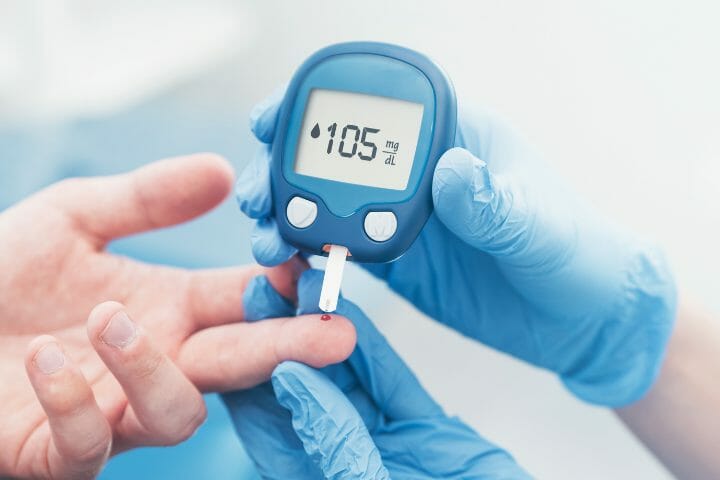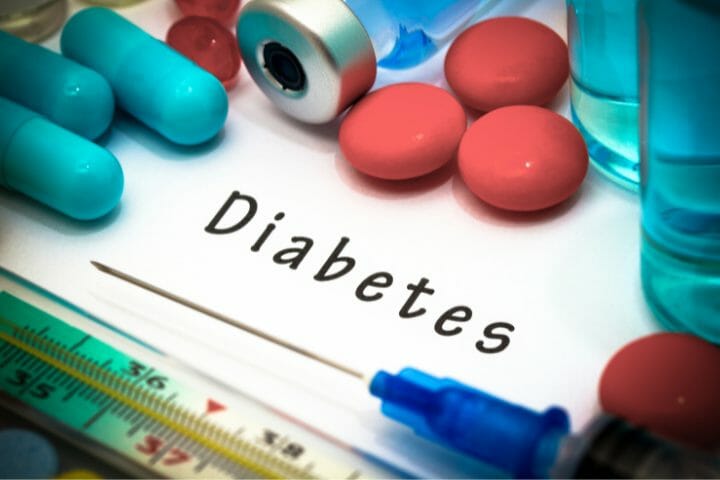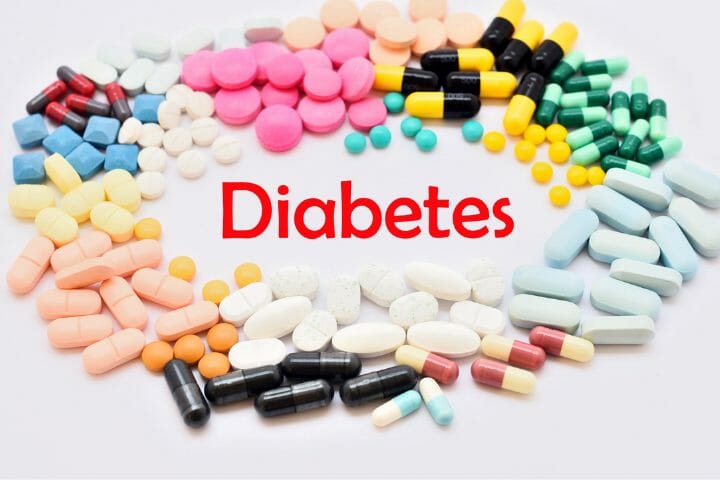With Diabetes becoming a national epidemic, its important to understand how the government is supporting those affected. Is diabetes a disability as per the SSA? Is it considered under the ADA act? Let us find out these answers.
Contents
Diabetes is one of the most prominent diseases that has engulfed the American people. As per the CDC, almost 37.3 million people in America suffer from this disease.
The figures have reached an alarming state and the disease is spreading like wildfire. Diabetes is a medical condition that leads to other problems in the body such as
- Lowering of immunity
- Increased blood pressure
- Heart disease
- Eye damage
- Kidney damage
- Nerve damage and several other problems.
Unfortunately, a sedentary lifestyle and lack of activity combined with fatty and unhealthy food is responsible for it.

But there is a small light at the end of the tunnel here. People with diabetes can get disability benefits. Type 1 and 2 diabetes are both covered by disability. People with all kinds of diabetes are treated the same as those with qualifying disabilities.
Should I Apply for Disability If I Have Diabetes?
If your type 2 diabetes prevents you from working, you may be eligible for disability compensation. Not everyone with diabetes is eligible. Even if you do, qualifying for benefits is a time-consuming and challenging process.
What Are Disability Benefits?
There are two kinds:
Social Security Disability Insurance (SSDI).
This type pays a monthly check if you are unable to work due to health problems. The amount you get will depend on what you made when you were employed.
You must have worked for at least five of the last ten years to be eligible.

Supplemental Security Income (SSI).
This program is only for those who earn less than $2,000 (the amount changes every year) and have little savings (less $3,000 if married or $2,000 if single). You will also receive a monthly check. You don’t need to work to receive SSI benefits.
Even if a child isn’t eligible for SSI, they may still be able to Medicaid (a government-run health insurance program that helps people with low incomes). For more information, contact the social services office of your county or state.
You might also like to read: Can You Get Disability For Overactive Bladder
How Do I Qualify?
You can qualify if:
- Your diabetes can’t be controlled.
- Diabetes uncontrolled can lead to serious health issues.
Your doctor must determine that the severity of your problems is severe enough to last at least one year. It will depend on how your medical condition impacts other parts of the body. The Social Security Administration (SSA) will determine if you are eligible for benefits.
When your blood glucose levels are too high, hyperglycemia can lead to diabetic ketoacidosis. This is a potentially fatal condition in which your acid and levels of glucose are too high. It can also cause damage to your:
- Heart
- Intestines
- Brain
- It can also cause mood and eating disorders.
Hyperglycemia may also develop into chronic. This can lead to severe problems with your nerves and blood vessels. It can also affect your:
- Heart (covered under listing 4.02, 4.04, 4.05, 4.12)
- Intestines
- Brain
- Kidneys (covered under listing 6.06)
- Eyes covered under listing 2.00)
It can also lead to:
- Depression
- Anxiety
- Infections Skin (covered under listing 8.04)
- Amputation of limbs (covered under listing 1.20)
The other extreme is hypoglycemia, which occurs when your blood sugar levels drops too low. This can cause seizures and affect your mental health.
You may be eligible for disability benefits if any of these factors prevent you from working as you used to. You cannot hold a job that matches your education, experience, and age.

What is an Unseen Disability?
Unseen disabilities refer to impairments that are invisible to others. Some people with disabilities need assistive devices such as glasses, wheelchairs, and hearing aids.
There may not be any obvious signs of type 1 diabetes. One can act and look normal while still managing their condition privately.
However, it is essential to remember that invisible disabilities can be just as severe and life-threatening as those with visible manifestations.
You might also like to read: Can You Get Disability For Overactive Bladder
Does Diabetes Count As An Unseen Disability Under The Equality Act?
The 1964 Civil Rights Act protected against discrimination for all persons, regardless of race, color, or religion — including sexual orientation or gender identity.
The Equality Act, which amended the Act in 2021, expanded the definition of discrimination to include protection against discrimination based upon age or disability.
The Social Security Administration includes diabetes in its list of disabilities regardless of whether there is any evidence. Any person with diabetes is protected from discrimination by this inclusion. This means that in a workplace, the employer will have to make reasonable accommodations for your doctor’s visits and other necessary requirements.

VA Rating For Diabetes
Type 1 diabetes is a condition in which the pancreas fails to function correctly, and the body cannot process sugars. Many people can manage diabetes. If someone becomes disabled or cannot work, they might be eligible for disability benefits.
A VA disability rating refers to the percentage of a service-connected disability assigned based on its severity. The disability rating is used to compensate veterans for an average loss of earning capacity due to their service-connected condition.
VA uses the VA Schedule for Rating Disabilities to assign disability ratings and codes for service-connected conditions. Each rating criteria describes a particular condition’s symptoms and/or treatment. Ratings can be issued by the VA, ranging in severity from 0 percent to 100 percent. The disability rating is generally higher for the more severe cases.
A rating of 0 percent does not provide monthly monetary compensation. However, it could make veterans eligible for ancillary benefits such as health care. A 100 percent rating offers the maximum monthly scheduled compensation. The monthly benefit for ratings between 0 to 100 percent increases incrementally with each rating.

Frequently Asked Questions
Is Diabetes a Disability when applying for a Job
No, diabetes is not a disability for applying for a job. This law applies to all employers in the United States with at least 15 employees. This law also applies to labor organizations.
Is type 2 Diabetes considered a Disability?
Diabetes is considered a disability under SSI and most laws. Type 1 and 2 diabetes are both protected.
Is gestational diabetes a disability?
Yes, gestational diabetes is in fact one of the few conditions that are short term but still qualify for disability benefits both as per the social security administration and the ADA.
Does a Child with Type 1 Diabetes Qualify for Disability?
Yes, children with low family income and juvenile diabetes are eligible for SSI benefits. The petition requested that the appropriate steps be taken, including issuing a notice to include Type 1 Diabetes Mellitus (T1DM), also known as Juvenile Diabetes, as a disability under Section 16 of the Rights of Persons with Disabilities Act 2016. This notification was for all practical purposes.
Wrap Up
Type 1 diabetes can be a chronic condition that can cause severe health problems.
Type 1 diabetics can often manage their condition with medication, insulin, and dietary regulation.
Diabetes can make it difficult or impossible to work in some cases.
If the person has type 1 diabetes, it may be considered a disability under the ADA. The individual could be eligible for reasonable accommodations by their employer to continue their job.
If they cannot work, they might be eligible for monetary benefits from the SSA.
The Social Security Authority will accept applications by mail, in person, or online. It will then decide a person’s eligibility to receive benefits. Thank you for reading the article.
